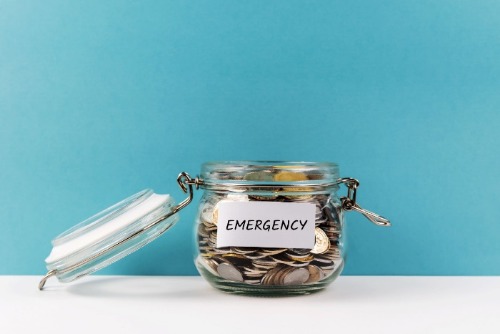Savings 101: Everything You Need To Know About Emergency Funds
Setting aside cash can give you peace of mind when unplanned situations happen. After all, unforeseen payments for medical bills, home repairs, and other emergencies can set you back and lead to financial losses.
Reserved money for unexpected expenses can help you feel more secure and confident about the future. So, it’s best to have enough cash stored. To help you understand the concept better, here’s everything you need to know about emergency funds:
Why Is an Emergency Fund Important?
Financial stability is beneficial to enjoying and maintaining your lifestyle. Therefore, an emergency fund can keep you on track and protected when unforeseen situations occur. Consider your emergency fund a safety net, reducing the need for high-interest credit cards and personal loans.
How Much Is Enough for an Emergency Fund?
There is no set amount required when it comes to saving for unplanned expenses. It usually depends on your lifestyle, income, costs, and dependents. However, keeping three to six months’ worth of monthly fees can be a good amount to start with.

What Are the Ways to Save for Unplanned Expenses?
Reaching the ideal amount for emergency funds might be challenging to accomplish, especially if you’re living paycheck-by-paycheck. To help ease the process, the following are some practices you can do:
Keep a Budget
Monitoring your income and expenses is a good rule of thumb when you’re saving for emergencies. If you track your spending habits, you’ll be able to calculate how much you can set aside without making drastic changes to your lifestyle.
For example, you’ve noticed that much of your money goes to unnecessary apparel. You can cut back a portion from your usual clothing expenses and allot them to your emergency fund.
Set a Goal
Rather than instantaneously putting a significant amount in your savings account, you can aim for a more feasible goal like a month’s worth of expenses. This mindset will lessen the pressure of saving and help you develop a habit. Once you reach the initial amount, you can gradually increase your goal.
To determine your monthly expenses, you must combine every factor you spend based on your budget. Your calculations may include costs for housing, food, transportation, and other necessities.
Save Excess Income
If you receive more money than you usually do, it’s best to allocate it to your emergency fund. It may be tempting to spend your tax refunds, holiday pays, and other sources of income, but taking advantage of these bonuses can jumpstart your savings.
Secure Your Money
A good way to keep your emergency funds intact is to deposit them in a separate account. If you need a place to store your savings, you can contact us at 1st Community Credit Union. We can keep your money safe for unexpected situations. Get in touch with us today so we can discuss your financial plans.
« Return to "Blog"
